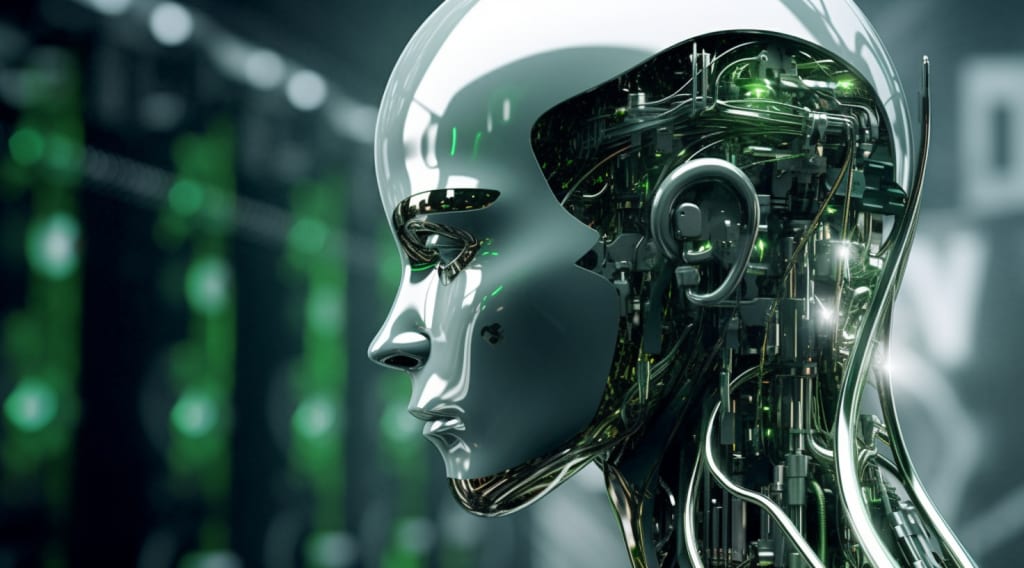
Title: "Revolutionizing Healthcare: The Role of Artificial Intelligence"
In the realm of healthcare, a revolution is underway. This revolution is not led by a new drug or a groundbreaking surgical procedure, but by something you might not expect: artificial intelligence (AI). AI, a field of computer science that aims to create systems capable of performing tasks that usually require human intelligence, is transforming healthcare in ways we could only dream of a few decades ago. From improving diagnostics and treatment plans to enhancing patient care, and even playing a crucial role in drug discovery and genomics, AI is reshaping the future of medicine.
The first area where AI is making a significant impact is in diagnostics. Medical imaging, such as X-rays, MRIs, and CT scans, has always been a vital tool in diagnosing a wide range of conditions. However, these images can be challenging to interpret, and subtle signs of disease can sometimes be missed. AI algorithms, particularly those using a technique called deep learning, are now being trained to analyze these images and detect abnormalities. These AI systems can often identify signs of diseases, such as cancer or heart disease, earlier and more accurately than human doctors, potentially saving lives and reducing treatment costs.
AI is also revolutionizing treatment plans. Traditionally, doctors have relied on their experience and medical literature to decide on the best treatment for a patient. However, every patient is unique, and what works best for one may not work as well for another. AI can help solve this problem by analyzing vast amounts of data from electronic health records, medical literature, and even wearable devices to predict how a patient will respond to different treatments. This approach, known as precision medicine, can lead to more effective and personalized treatment plans.
Patient care is another area where AI is making a significant difference. AI can help monitor patients in real-time, alerting healthcare professionals if a patient's condition deteriorates. For example, AI systems can analyze data from wearable devices to detect early signs of conditions like heart disease or diabetes, allowing for early intervention. AI can also help manage chronic conditions by reminding patients to take their medication, suggesting lifestyle changes, and even providing mental health support.
Beyond patient care and treatment, AI is also playing a pivotal role in drug discovery and genomics. Developing a new drug is a time-consuming and expensive process, often taking over a decade and costing billions of dollars. AI can help speed up this process by predicting how different compounds will interact with the body and identifying potential side effects early on. This can help researchers focus on the most promising compounds and avoid costly dead ends.
In the field of genomics, AI is helping to unlock the secrets of our DNA. Our genomes, the complete set of our genetic material, hold clues to a wide range of diseases, from cancer to Alzheimer's. However, interpreting this data is a monumental task, as each person's genome contains over three billion base pairs of DNA. AI can help by identifying patterns in this vast amount of data, helping researchers understand how different genes contribute to disease and potentially leading to new treatments.
While the potential of AI in healthcare is immense, it's important to remember that it's not a magic bullet. AI systems are only as good as the data they're trained on, and biases in this data can lead to biased predictions. Furthermore, the use of AI in healthcare raises important ethical and privacy concerns that need to be addressed.
Nevertheless, the benefits of AI in healthcare are undeniable. By improving diagnostics, personalizing treatment plans, enhancing patient care, and accelerating drug discovery and genomics, AI is helping to create a future where healthcare is more effective, efficient, and personalized. As we continue to refine these technologies and address their challenges, we can look forward to a future where AI and healthcare go hand in hand, working together to improve
the health and wellbeing of people around the world.
AI is not replacing our healthcare professionals; instead, it's augmenting their abilities, providing them with tools that can help them do their jobs more effectively. It's a powerful assistant that can sift through vast amounts of data, spot patterns that a human might miss, and provide insights that can lead to better patient outcomes.
In conclusion, the integration of AI in healthcare is a promising development that holds the potential to revolutionize the medical field. As we continue to harness the power of AI, we are moving towards a future where disease could be detected earlier, treatments could be more personalized, and patient care could be more efficient and effective. The journey of AI in healthcare is just beginning, and it's a journey that could lead us to a healthier future for all.
The potential of AI in healthcare is vast and exciting. It's a tool that can help us understand diseases better, develop new treatments, and deliver care more effectively. But like any tool, it's only as good as the hands that wield it. As we continue to develop and deploy AI in healthcare, it's crucial that we do so responsibly, ethically, and with the best interests of patients at heart. The future of healthcare is bright, and with the help of AI, it could be even brighter.





Comments
There are no comments for this story
Be the first to respond and start the conversation.